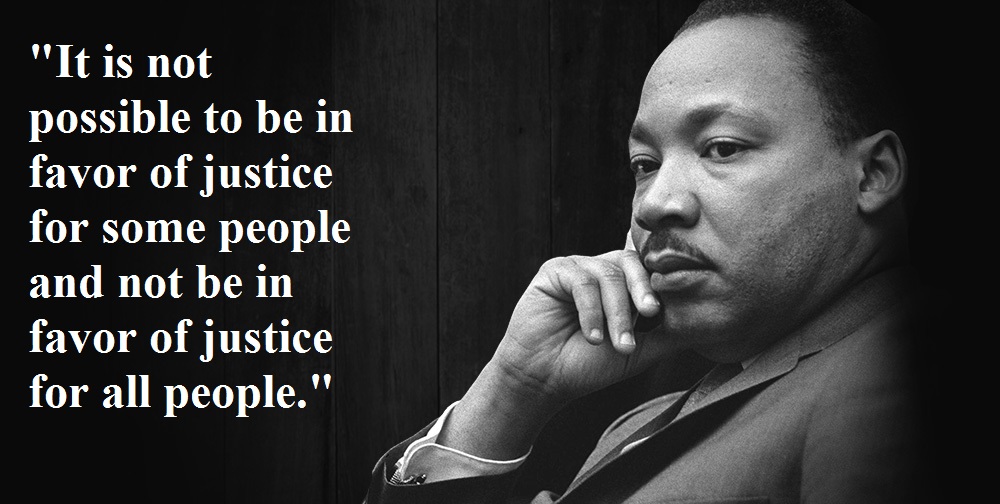The Legacy of Dr. Martin Luther King, Jr. and the Pursuit of his Dream
 As we enter Black History Month, I reflect on the legacy of Martin Luther King, Jr. Almost fifty years after King’s death, we are still searching for his elusive
As we enter Black History Month, I reflect on the legacy of Martin Luther King, Jr. Almost fifty years after King’s death, we are still searching for his elusive
dream. Recent events, such as those in Ferguson, last summer’s ruthless killing of a prayer
group in Charleston, South Carolina, and the all-too-frequent murdering of children
of color by law enforcement, have shown us that there is still much progress to be made. Last
semester, the University of Kansas held a town hall meeting to discuss ongoing racial
injustice on campus. As students were asked to tell their stories
so that the university could find solutions, the student body grew anxious and
then infuriated. “I’ve been telling my story for years,” one student exclaimed,
“and still nothing has been done.”
What has become glaringly clear, both at KU and in society
at large, is that we are still in pursuit of King’s dream. In a special segment to CNN, “Looking for Martin Luther King’s ‘Dream,'” Kevin Powell writes, “Violence, hatred and the spiritual sickness [King] talked about in our country are alive and well. That is why I think it does us
some good as a nation of millions to not just say we love King on his birthday,
to not just honor him with the national holiday, or even by doing service on
that day.” And Powell is right. King’s message is a timeless and necessary one that cannot
be confined to one day of the year.
In Kevin Powell’s latest memoir, The Education of Kevin Powell: A Boy’s Journey into Manhood, he discusses his rise and transformation as a young black
male in our discriminatory society to the man he is now. Like King, Powell became a social activist, pushing for change and equality for all. In February,
the University of Kansas will welcome Kevin Powell who will talk about his
latest book and topics of social justice.
Watch Kevin Powell’s 2015 MLK speech at the Missouri History Museum.